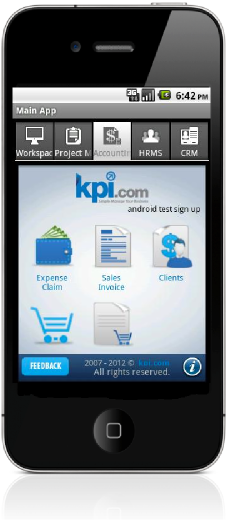Why Your Next Accounting Software Should be Web-Based
Published Date : September 3, 2017
Categories : CRM, Managing Business
[simple_crumbs root="Home" /]
 Computers have become firmly entrenched in offices around the developed world. From document creation to record-keeping, business runs on computers. Networking, however, has been slower to dominate the office. While email and the Internet have become standard, many businesses fail to fully take advantage of the power that the Internet provides. Recent developments, however, have vaulted Internet-based software products into prominence, and most medium-sized business would benefit tremendously from switching.
Computers have become firmly entrenched in offices around the developed world. From document creation to record-keeping, business runs on computers. Networking, however, has been slower to dominate the office. While email and the Internet have become standard, many businesses fail to fully take advantage of the power that the Internet provides. Recent developments, however, have vaulted Internet-based software products into prominence, and most medium-sized business would benefit tremendously from switching.

Internet-based platforms do not require that specific software is installed on each workstation. As many business managers know, the time and money that upgrades require is substantial. Further, changing software requirements demand frequent hardware upgrades that can quickly drain an IT budget. Software run over the Internet, on the other hand, only requires server configuration and upgrades to the server's software.
Moving to Internet-based software also allows companies to support a diverse range of hardware and software platforms. Some businesses are moving away from the standard upgrade cycles; computer hardware has advanced to the point that upgrades are not necessary to provide more functionality, and most hardware upgrades are simply used to upgrade the operating system. Internet-based platforms have no operating system requirements, and businesses can support PCs and Apple computers without any special configuration as well as older computers.
Security
Security demands are also eased. With a properly configured back-end server, Internet-based platforms are far easier to secure. Since each workstation essentially functions as a thin-client, workstation compromises will not provide a direct route to accessing a company's information. The cost of security breaches are expensive both in terms of money and reputation, and the inherent security of Internet-based accounting platforms makes them even more valuable to small and medium-sized businesses.
Another major benefit is the freedom Internet-based business platforms enable. With more workers telecommuting than ever before, these platforms make access from home easy. Further, companies with workers who frequently travel will benefit from letting workers access their important data while on the road. Information often changes while workers travel, and instant updates allow workers to come equipped with the latest information and analyses.
BYOD
Smart phones and tablets are becoming more popular within offices. While these devices are not great for creating documents, they function well as communication and analysis platforms. The traditional workstation models fits poorly with these new devices, but a web-based front-end can easily work with these platforms. For management, the workday never truly ends; being able to access important information without having to haul around a laptop is a major benefit.
Online accounting and business management platforms also integrate well with the new breed of products that are becoming standard in offices. Virtual meetings use webcams and microphones to let companies hold meetings from across the globe. By using web-based platforms, businesses can more easily share important information during meetings. Advanced analysis programs enable businesses to take advantage of centralized data storage, and these platforms make the installation of these tools simpler.
Analysts agree that the future of software lies over the network. Specialized networking hardware works in conjunction with new software packages to provide an experience that the workstation paradigm cannot match. By making the switch early, businesses can take full advantage of what these platforms have to offer today.
 Computers have become firmly entrenched in offices around the developed world. From document creation to record-keeping, business runs on computers. Networking, however, has been slower to dominate the office. While email and the Internet have become standard, many businesses fail to fully take advantage of the power that the Internet provides. Recent developments, however, have vaulted Internet-based software products into prominence, and most medium-sized business would benefit tremendously from switching.
Computers have become firmly entrenched in offices around the developed world. From document creation to record-keeping, business runs on computers. Networking, however, has been slower to dominate the office. While email and the Internet have become standard, many businesses fail to fully take advantage of the power that the Internet provides. Recent developments, however, have vaulted Internet-based software products into prominence, and most medium-sized business would benefit tremendously from switching.
